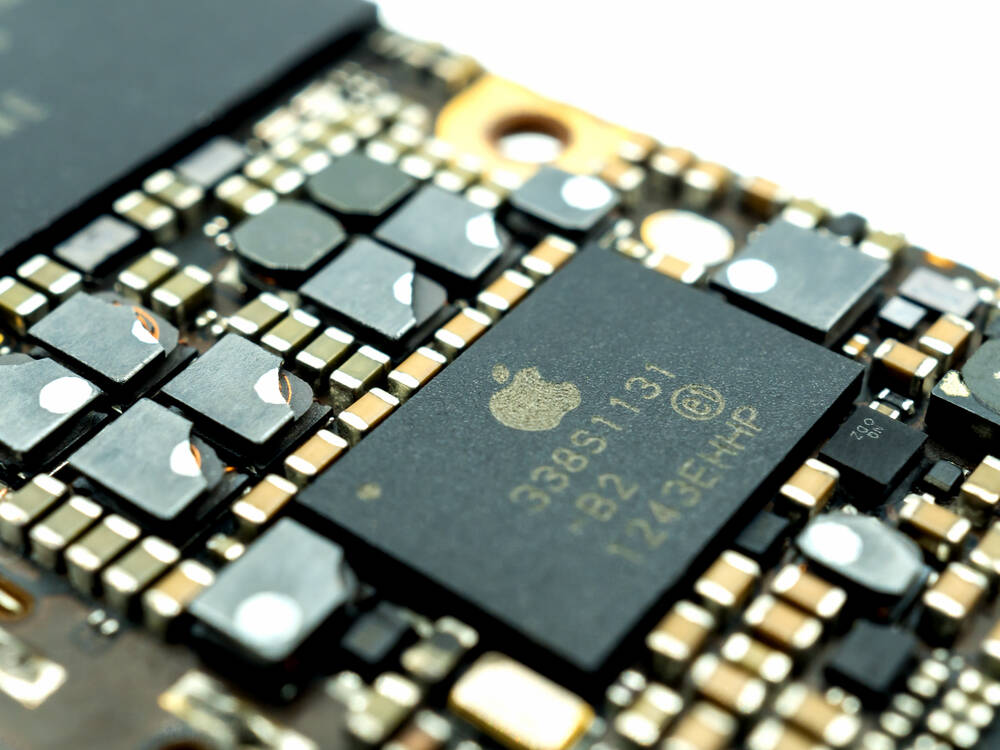Apple Aims To Replace Broadcom, Qualcomm Wireless Chips With Its Own

Apple is said to be working to replace key wireless components in its devices with its own chips, a move that could see the Cupertino giant controlling most of the technology inside the smartphones and other mobile devices it makes.
The iPhone maker is reported to be preparing internally produced cellular modem chips for the end of 2024 or early 2025, which would replace those it currently buys in from Qualcomm. Within a similar timeframe, it is apparently seeking to replace the wireless chip produced by Broadcom that provides Wi-Fi and Bluetooth support, according to Bloomberg, which cites unnamed sources that asked not to be identified.
Apple already designs its own Arm-based processors, which are typically manufactured for the company by Taiwan's TSMC, and extending this to include home-grown wireless chips would give the company a greater level of control over much of the technology that goes into an iPhone.
But it would not be good news for Broadcom, as Apple is said to be the chipmaker's largest customer and understood to account for about one fifth of its revenue. Shares in Broadcom were sharply down following reports that Apple was working on its own Wi-Fi and Bluetooth chips, according to MarketWatch.
Broadcom is said to have been warning for years that its reliance on Apple custom would not last forever, but during the company's Q4 2022 earnings call, CEO Hock Tan denied that things were likely to get difficult for the company, saying that it was "very well-positioned in those few product lines that are, I call it, almost franchise in our North American customers," referring to Wi-Fi, Bluetooth, the RF front end and touchscreen controllers.
The move is also not great for Qualcomm, which provides the Snapdragon X65 5G modem used in the iPhone 14 handset. But the company had several years' notice of Apple's intentions, following Cupertino's purchase of what remained of Intel's smartphone modem business in 2019.
- British biz Imagination Technologies admits Apple may dump its IP
- Apple preps for 'third-party iOS app stores' in Europe
- Qualcomm develops one automotive chip to rule them all
- Taiwan to Foxconn: Selling stake in Chinese chipmaker? We'll still fine you
As The Register reported in 2021, Apple was rumored back then to be aiming to start using its own home-grown cellular chips by this year, but these plans appear to have been delayed, and so Qualcomm is expected to continue to supply all the 5G chipsets for iPhones in 2022.
According to Bloomberg, Apple is set to use its own cellular chips in just one new device at first, and will then gradually migrate away from Qualcomm silicon over a period of about three years.
The company is also understood to be developing a future chip that will combine all the wireless functions – cellular modem, Wi-Fi and Bluetooth - into one single component.
We contacted Apple for confirmation of its wireless chip plans and will update if the company responds. ®
From Chip War To Cloud War: The Next Frontier In Global Tech Competition
The global chip war, characterized by intense competition among nations and corporations for supremacy in semiconductor ... Read more
The High Stakes Of Tech Regulation: Security Risks And Market Dynamics
The influence of tech giants in the global economy continues to grow, raising crucial questions about how to balance sec... Read more
The Tyranny Of Instagram Interiors: Why It's Time To Break Free From Algorithm-Driven Aesthetics
Instagram has become a dominant force in shaping interior design trends, offering a seemingly endless stream of inspirat... Read more
The Data Crunch In AI: Strategies For Sustainability
Exploring solutions to the imminent exhaustion of internet data for AI training.As the artificial intelligence (AI) indu... Read more
Google Abandons Four-Year Effort To Remove Cookies From Chrome Browser
After four years of dedicated effort, Google has decided to abandon its plan to remove third-party cookies from its Chro... Read more
LinkedIn Embraces AI And Gamification To Drive User Engagement And Revenue
In an effort to tackle slowing revenue growth and enhance user engagement, LinkedIn is turning to artificial intelligenc... Read more

